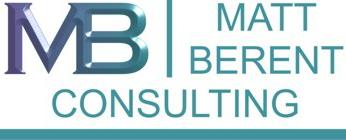 Protzko J., Krosnick J., Nelson L., Nosek B. A., Axt J., Berent M., Buttrick N., DeBell M., Ebersole C. R., Lundmark S., MacInnis B. (2024). High replicability of newly discovered social-behavioural findings is achievable. Nature Human Behaviour, 8,311-9.
Protzko J., Krosnick J., Nelson L., Nosek B. A., Axt J., Berent M., Buttrick N., DeBell M., Ebersole C. R., Lundmark S., MacInnis B. (2024). High replicability of newly discovered social-behavioural findings is achievable. Nature Human Behaviour, 8,311-9.
 Holbrook, A. L., Berent, M. K., Krosnick, J. A., Visser, P. S., & Boninger, D. A. (2005). Attitude importance and the accumulation of attitude-relevant knowledge in memory. Journal of Personality and Social Psychology, 88, 749-769.
Holbrook, A. L., Berent, M. K., Krosnick, J. A., Visser, P. S., & Boninger, D. A. (2005). Attitude importance and the accumulation of attitude-relevant knowledge in memory. Journal of Personality and Social Psychology, 88, 749-769.
 Bizer, G. Y., Visser, P. S., Berent, M. K., & Krosnick, J. A. (2004). Importance, knowledge, and accessibility: Exploring the dimensionality of strength-related attitude properties. In P. Neijens and W Saris (Eds.), Studies in public opinion: Attitudes, non-attitudes, measurement error, and change (pp. 215-241). Princeton, NJ: Princeton University Press.
Bizer, G. Y., Visser, P. S., Berent, M. K., & Krosnick, J. A. (2004). Importance, knowledge, and accessibility: Exploring the dimensionality of strength-related attitude properties. In P. Neijens and W Saris (Eds.), Studies in public opinion: Attitudes, non-attitudes, measurement error, and change (pp. 215-241). Princeton, NJ: Princeton University Press.
 Krosnick, J. A., Holbrook, A. L., Berent, M. K., Carson, R. T., Hanemann, W. M., Kopp, R. J., Mitchell, R. C., Presser, S., Ruud, P. A., Smith, V. K., Moody, W. R., Green, M. C., and Conaway, M. (2002). The impact of "No Opinion" response options on data quality: Non-attitude reduction or an invitation to satisfice? Public Opinion Quarterly, 66, 371-403. Reprinted (2008) in C. Roberts & R. Jowell (Eds.) Attitude Measurement. London, Sage Publications.
Krosnick, J. A., Holbrook, A. L., Berent, M. K., Carson, R. T., Hanemann, W. M., Kopp, R. J., Mitchell, R. C., Presser, S., Ruud, P. A., Smith, V. K., Moody, W. R., Green, M. C., and Conaway, M. (2002). The impact of "No Opinion" response options on data quality: Non-attitude reduction or an invitation to satisfice? Public Opinion Quarterly, 66, 371-403. Reprinted (2008) in C. Roberts & R. Jowell (Eds.) Attitude Measurement. London, Sage Publications.
 Boninger, D. S., Berent, M. K., Krosnick, J. A., & Fabrigar, L. R. (1995). The causes and consequences of attitude importance. In R. E. Petty & J. A. Krosnick (Eds.), Attitude strength: Antecedents and consequences: The Ohio State University series in attitudes and persuasion (Vol. 4, pp. 159-190). Hillsdale, NJ: Erlbaum.
Boninger, D. S., Berent, M. K., Krosnick, J. A., & Fabrigar, L. R. (1995). The causes and consequences of attitude importance. In R. E. Petty & J. A. Krosnick (Eds.), Attitude strength: Antecedents and consequences: The Ohio State University series in attitudes and persuasion (Vol. 4, pp. 159-190). Hillsdale, NJ: Erlbaum.
 Krosnick, J. A., Boninger, D. S., Chuang, Y. C., Berent, M. K., & Carnot, C. G. (1993). Attitude strength: One construct or many related constructs? Journal of Personality and Social Psychology, 65, 1132-1151.
Krosnick, J. A., Boninger, D. S., Chuang, Y. C., Berent, M. K., & Carnot, C. G. (1993). Attitude strength: One construct or many related constructs? Journal of Personality and Social Psychology, 65, 1132-1151.
Matthew K. Berent, Ph.D.
Publications
Real Science Real Solutions



